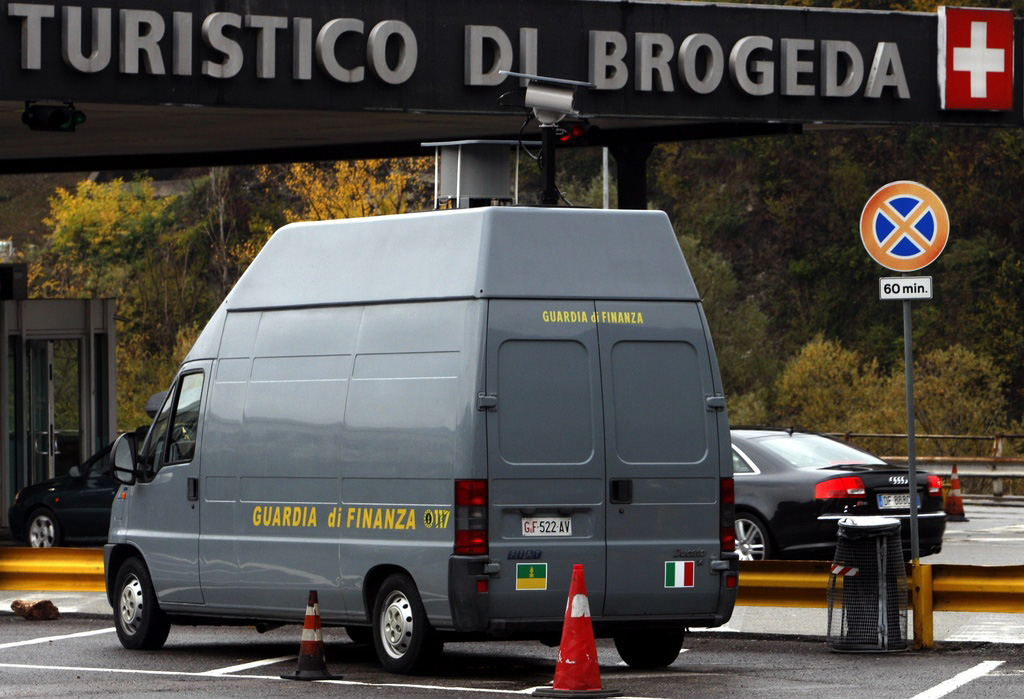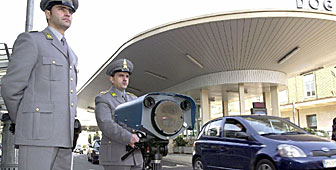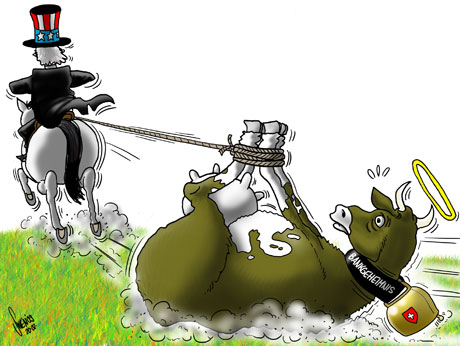Tax amnesty to hit southern canton of Ticino

A successful Italian tax amnesty ends on Tuesday, with Switzerland left counting the cost to its financial centre.
Experts predict that “scudo III” – the third Italian tax amnesty since 2001 – will surpass Italian government projections of recouping tax revenues of €3.7 billion (SF5.6 billion) in 2010.
Official figures are not yet available but there are reports of about €100 billion being repatriated to Italy, of which €5 billion would go to treasury coffers.
If confirmed, the results of the scheme orchestrated by the Italian minister of economy and finance, Giulio Tremonti, would exceed the total amount recouped during the last two amnesties.
Then, €25 billion left Swiss banks (80 per cent from Lugano), and around €19 billion was regulated by the Italian tax authority but remained under management in Switzerland.
Several factors may explain the success of the Italian offensive. The majority of Italian cheats who put their money in Switzerland, and in Ticino in particular, come from Lombardy and Piedmont, and are often entrepreneurs and small business owners.
Since the collapse of financial markets, Italian banks have not been helping to boost the national economic fabric. “To cope with the crisis and their need for cash, some had no other choice but to recuperate their capital from abroad,” Franco Citterio, director of the Ticino Banking Association (TBA), told swissinfo.ch.
“Tough operations”
“The tough operations carried out by Giulio Tremonti and widely reported by the media in Italy, also made people suspicious,” said Emanuele Stauffer, a Lugano lawyer and former Ticino prosecutor.
“They have great fears about the future because they know that the sleuths in the Italian tax authorities have collected a large amount of data and information,” he added.
In recent months, police have carried out raids on dozens of banks and financial institutions, photographed movement across the Italian-Swiss border and tailed Italian customers passing through Ticino.
Tax evaders preferred to free themselves at an advantageous rate (a one-off tax rate of five per cent) before December 15, rather than run the risk of being caught and suffer the wrath of Italian justice which promises to hand out fines to set an example.
What is more, the confidence of Italian clients in Switzerland has taken a blow since Swiss bank UBS was embroiled in a tax case in the United States and after Switzerland handed over a list of customers to the US Internal Revenue Service.
“Climate of uncertainty”
Both Stauffer and Citterio feel that “this climate of uncertainty and crisis of confidence served the cause of the Italian minister of economy and finance, and encouraged Italian clients to bring their savings home”.
Martin Maurer, secretary general of the Association of Foreign Banks in Switzerland says this climate, combined with the financial downturn, also boosted the amounts of money repatriated.
Nevertheless in Ticino, some people prefer to see this outflow of capital as “a glass that is half full” rather than half empty.
“If about 20 per cent of Italian savings under management has left the Lugano financial centre, it’s better to be happy about the 80 per cent that is still there!” commented the head of a trust company in the south of the canton, who wished to remain anonymous.
But for the time being the bankers are staying cautious and discreet. They know that an extension of scudo III or even a scudo IV, as many pessimists are forecasting, may be lurking just around the corner.
Such an operation might win over the most stubborn people, that is, those with the largest fortunes. That’s what Tremonti – an Italian-Swiss lawyer – is hoping, but he notes that “those who did not declare their savings in previous amnesties are hardly likely to do it now”.
Don’t worry
“These old fortunes are not exposed to the crisis and their owners have the means not to have to worry,” he said laconically.
Others feel that the current repatriation of money will be enough to persuade the Italian authorities not to prolong the exercise. However, Italy is on the edge of financial collapse and cannot come to terms with its spending.
The International Monetary Fund has termed Termontio’s scudo III a “desperate manoeuvre”. It adds that sooner or later the Italian government will have to tackle problems at their source.
Italy holds the European record for non-declared revenues subject to tax and comes ahead of Romania, Bulgaria and Estonia.
Nicole della Pietra in Lugano, swissinfo.ch (Translated from French by Robert Brookes)
Italy’s parliament voted for a third tax amnesty in nine years in October.
Tax dodgers who came forward anonymously will receive the relatively light one-off tax rate of 5%.
Italians with accounts within the European Union, along with other countries such as the US, Japan, Mexico and Australia, can keep their funds at those banks. But clients of Swiss banks have been told they must return their assets to Italy.
The United States and Britain are among other countries that are operating, or have recently staged, tax amnesties.
In the aftermath of the amnesties in Italy, the Swiss canton of Jura has taken the step of announcing an amnesty for 2010-2014.
It is expected to be followed soon by canton Ticino – which also had a similar measure in 1987. Centre-right parties say they are in favour of a cantonal amnesty.
Several experts, including Ticino tax expert Professor Marco Bernasconi, have been calling for a tax amnesty at the federal level, similar to the one in 1965, which brought in almost SFr11 billion.
For the time being, this is not a priority for the authorities in Bern, who point out the “good morality of the Swiss in tax matters”.

In compliance with the JTI standards
More: SWI swissinfo.ch certified by the Journalism Trust Initiative




You can find an overview of ongoing debates with our journalists here. Please join us!
If you want to start a conversation about a topic raised in this article or want to report factual errors, email us at english@swissinfo.ch.